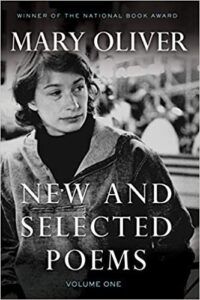For more Mary Oliver, check out Map Of Mary Oliver: A Reading Pathway. Through poetry, Oliver shared her sense of wonder (“When it’s over, I want to say /all my life I was a bride married to amazement”) often with a first person perspective and lean prose. Her poetry also contains direct life advice (“If you suddenly and unexpectedly feel joy, don’t hesitate. Give in to it.”). While Oliver wrote extensively about the beauty of the world, she also wrote of it’s darkness. A survivor of childhood abuse and cancer, her poems deal with loss, pain, and lingering trauma: “And forever those nights snarl/ the delicate machinery of the days.” Yet, the refrain in her work is always the redemptive power of beauty. In 2019, Helena Fitzgerald wrote at The Cut about how Oliver’s poetry became a meme. Writing of Oliver’s iconic question, “What will you do/with your one wild and precious life,” Fitzgerald observed, “Those famous lines from ‘The Summer Day‘, in particular, had gained unlikely popularity on Twitter and Tumblr…They were often employed as a sly insult, setting up the ridiculousness of someone’s getting worked up about something.” — Brandy Jensen (@BrandyLJensen) July 1, 2016 Instagram, Twitter, Etsy, and other pop culture mentions capture Oliver’s magic; she wrote lightning bolt truths in a few short words. Throughout her career, the poet had both the blessing and curse of being seen as “accessible” to readers who don’t normally read poetry. The label was a blessing when it came to book sales and winning over new fans, but it (and misogyny) also cost her clout with the critics. The New York Times critic reviewing her first collection dismissed her talent with a “She is good, but predictably good.”
